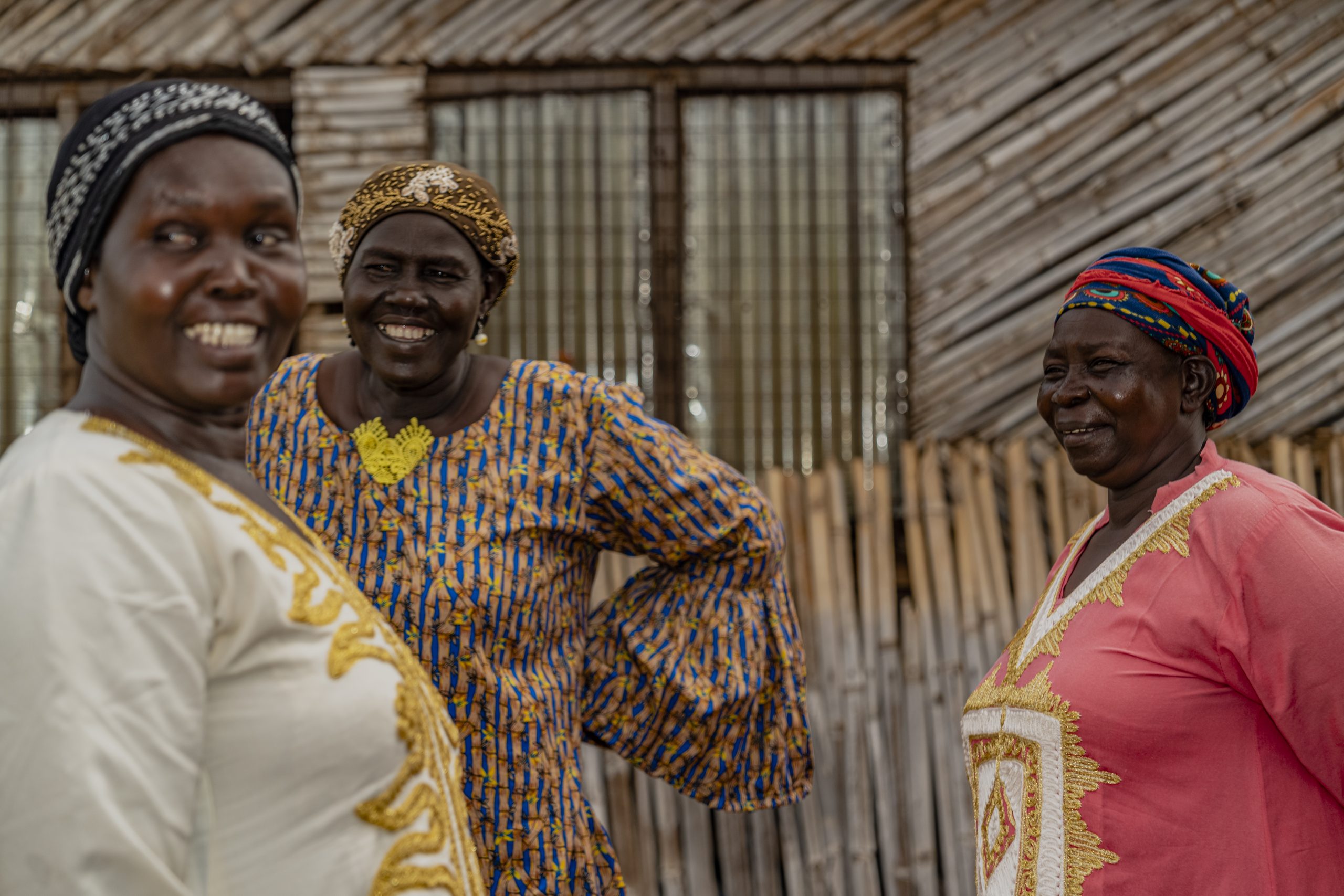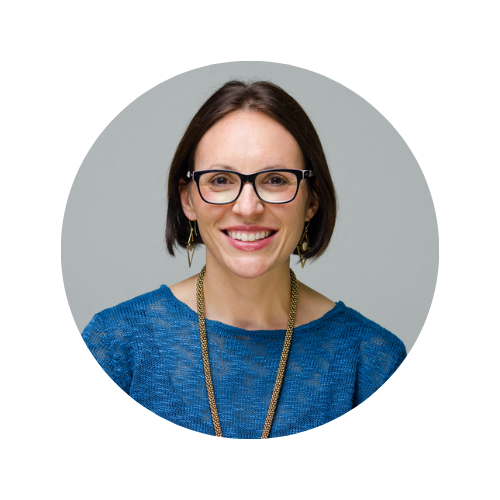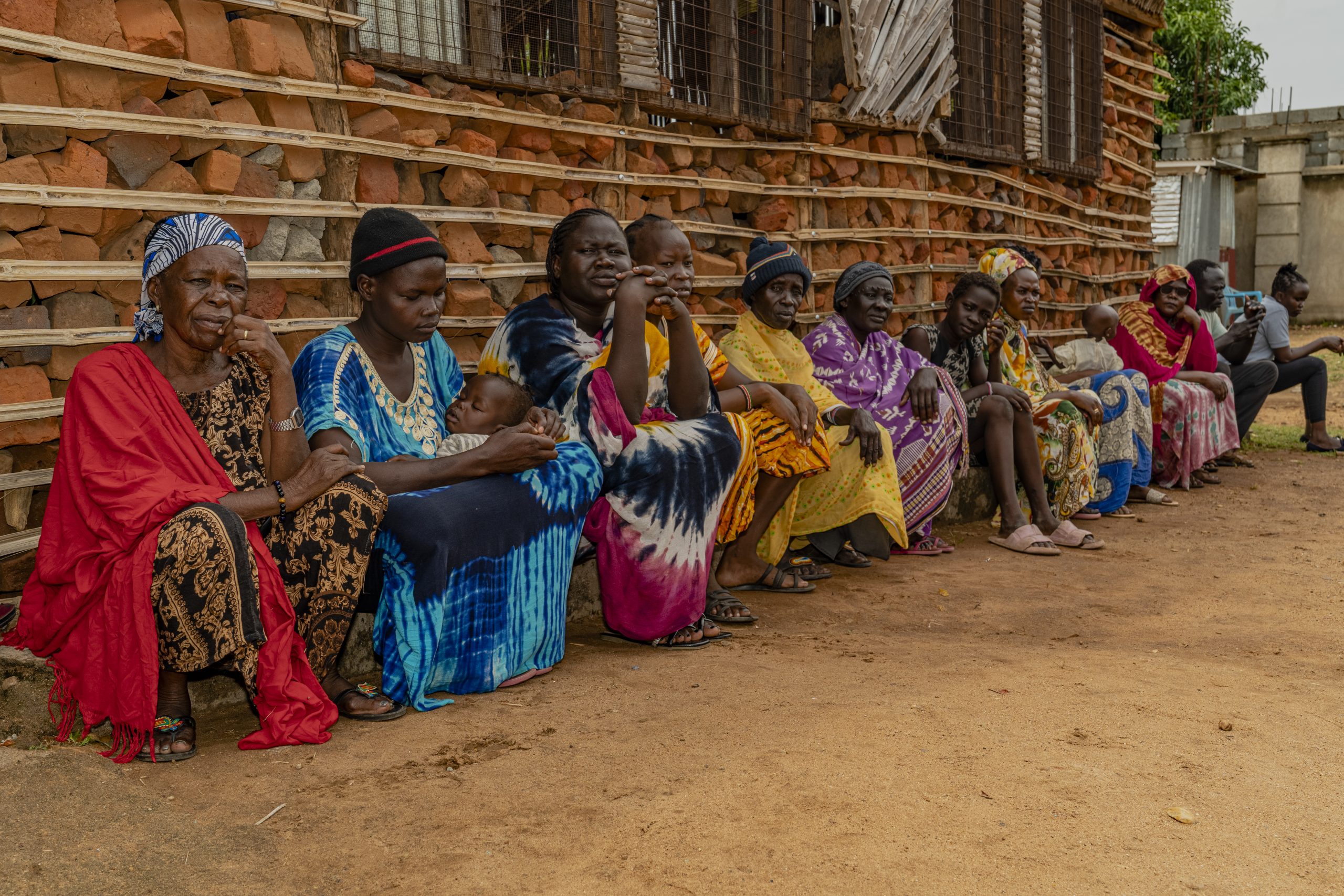After spending the last few days visiting two IDP (internally displaced persons) camps in Juba, South Sudan, everything began to feel increasingly bleak.
The situation of the almost 45,000 people living in the two overcrowded camps felt intractable and honestly, quite hopeless. There were people living under unsuitable old tarpaulins in temporary shelters crammed one next to the other. There was no running water and no water source available other than paying to fill your jerry can from a visiting water truck. There was extreme food insecurity and unaffordable education options, leaving young children roaming the camps all day long. There were also no functioning latrines which, in turn, has led to a huge prevalence of open defecation, and high incidents of sexual and gender-based violence. Both in the camps and more broadly, the people of South Sudan, especially women and children, face severe levels of violence, exploitation, and abuse (including conflict-related sexual violence, gender-based violence (GBV), and early childhood marriage).
On this visit, I had the opportunity to speak with various IDP camp leaders. IsraAID has been operating in South Sudan since it was declared as the youngest country in the world in 2011. With almost 60 staff from all different nationalities, the team have run a range of development programs: from running women and girl friendly spaces, to managing cases of rape and other extreme forms of sexual violence, placing and supporting vulnerable child survivors in safe houses, and raising awareness against common harmful practices such as forced marriage.
Unfortunately, multiple conversations with camp leaders seemed to indicate time and again the heavy dysfunction of the humanitarian ecosystem. The camp leaders highlighted how deep dependencies have been established between extremely vulnerable communities and international aid organizations. When funding is diverted, teams exit the camps and leave communities in the lurch. In fact, leader after leader spoke about the ‘great exit of NGOs’, clearly placed in impossible situations following extreme funding cuts. They noted how food distributions were unceremoniously stopped, leading to acute hunger; broken latrines left abandoned with no maintenance contingency plans in place; health facilities closed and abandoned. This trend persists even as a huge influx of IDPs and returnees continue to flow into the camps as the war in Sudan rages,with more than 8.7 million displaced, as well as ongoing violence in Ethiopia. The 2.2 million internally displaced persons represent the world’s fourth most neglected displacement crisis.
In this devastating context, I asked the team how they manage to continue day in and day out when the need is so huge and so insurmountable, when partners and peer organizations continue to exit, when community leaders request more and more support. I questioned how we could really create sustainable change with communities so deeply suffering, and our budget stuck and spluttering as funding opportunities for South Sudan continue to decrease.
But then we visited Lemon Gaba. And I learnt that the strongest and most sustainable programs are those that can be left behind to flourish under the leadership of local actors without external support.

The women-and-girl-friendly space in the Lemon Gaba Community of Juba, South Sudan, May 2024. Credit: IsraAID/Bon Malas Wal
Lemon Gaba is a community of over 10,000 IDPs and returnees. Here, we met a vibrant group of unbelievably strong, vocal women and entered a thriving community space started by IsraAID under a tree in 2018. It was handed over to the community in 2021, as an enclosed space containing two bamboo structures for a women and girl’s space and child friendly space, as well as a functioning water tank.
I recall visiting then, and hearing the worry and fear of the community as the team prepared for their exit. However, the social workers and community mobilisers reassured the community members that it was their space, and that they had enough skills and resources now to run it themselves.
Walking back in, in 2024, I was humbled and deeply moved by the group of united women – genuine change agents in their community – that welcomed us with smiles and song.
In fact, it is clear that the space is so much better – with genuine community ownership proving transformative. The bamboo structures have been reinforced and improved, and the floors cemented. These changes have been possible by using money from the income generating activities that were set up at the start of the program in 2019, and sustained by leaving sewing machines and training the community in basic sewing and tailoring.
Mama Rose told us about her six children, and how all her girls are now enrolled in school. Her oldest is about to be one of the first girls in the community to start secondary school – this got a rapturous applause from the women! She also explained how the income generation activities and the women’s cooperative had enabled her to save money to send them to school. She ended with a powerful statement that her girls will not experience GBV, like their mother and her friends. This is because they are educated now and committed to making sure the community lives in peace. She further explained that because IsraAID also worked with the men in the community, the influence of the women’s group was also able to be felt by all members of the community- no matter the gender.
Another element of the original programme continuing to be employed by the women was “rabita” – weekly home visits to community members. They get together every morning, collect firewood and make tea; they sit together to discuss the main issues they and the community are facing, and then they go in small groups to visit families to discuss issues including early childhood marriage, incidents of sexual violence, and gender equality. Finally, the Community Emergency Council was also still strong and functioning. The women and men who lead this manage severe cases of violence and rape, and ensure cases are referred on to relevant organizations, and all potential repercussions are considered.
Mama Rose explained that the community still has issues. The youth have got little to do and thus often turn to violence and alcohol. They are still facing issues of GBV, rape and forced marriage, although they believe instances of these violences have lessened due to their continuous awareness raising. However, this group of resilient women believe they can handle the issues that face them, if they do it together, and leverage the foundations of the progamme. They would of course love some additional support, but they also emphasized that they will manage alone if they must.
Ultimately, this site visit reinforced to me that the humanitarian community must do better. These protracted, neglected crises need sustainable community owned interventions that can bring change. We need donors to commit to long term support, even when other global crises distract us. We must create solutions that don’t cause dependency from disadvantaged communities. We cannot exit with no follow up plan.
Instead, like the amazing camp leaders I met in Juba, we must let our strong teams of national staff work hand in hand with communities to build models that are owned by the community and meet their needs. We must also give these models time and space to work.
We must build many more Lemon Gaba models and empower many more Mama Roses.
—————————————-
 Tamar Kosky Lazarus is the Chief Development and Communications officer at IsraAID and has worked on dozens of IsraAID’s humanitarian missions around the world. Tamar holds master’s degrees in Middle Eastern Politics and Local Government Management and Policy and has over 15 years experience in fundraising and communications in the non-profit sector. She lives in Israel, with her partner and 3 children.
Tamar Kosky Lazarus is the Chief Development and Communications officer at IsraAID and has worked on dozens of IsraAID’s humanitarian missions around the world. Tamar holds master’s degrees in Middle Eastern Politics and Local Government Management and Policy and has over 15 years experience in fundraising and communications in the non-profit sector. She lives in Israel, with her partner and 3 children.
IsraAID is an international humanitarian non-governmental organization. Since 2001, IsraAID has become synonymous with a rapid response to humanitarian crises and a long-term commitment to working with affected communities. During and after emergencies, IsraAID partners with communities to re-build their lives – and their futures – together. As of July 2024, IsraAID has responded to more than 100 emergencies, in more than 60 countries.
Feature image: The women-and-girl-friendly space in the Lemon Gaba Community of Juba, South Sudan, May 2024. Credit: IsraAID/Bon Malas Wal.
